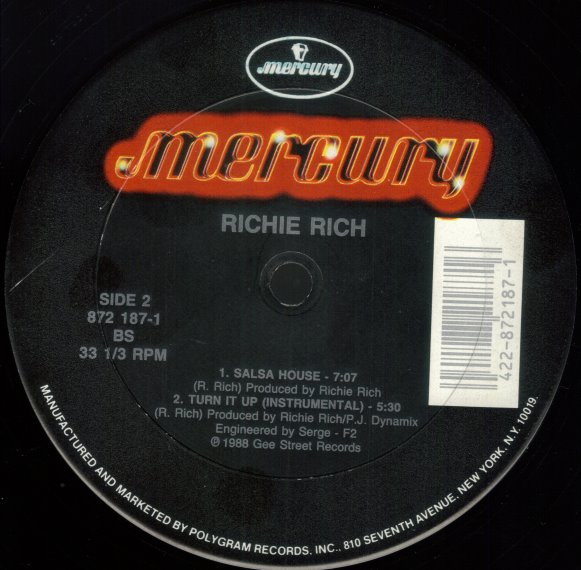
One of the things I’ve been doing over the last couple years has been painstakingly refining how I organize my digital music collection, which at this point is over
14,000 37,000 hand-selected tracks I like. It has no blind rips of full releases—otherwise it’d be 5 times as big, with lots of duplicates. So this means getting things filed away into a smarter system than just alphabetically.
Right now what I have is three main categories: DJ sets, Artists, and Genres. The first, DJ sets, is self-explanatory, and is still kind of a shambles. The second, Artists, is for artists that I have a lot of releases by, and who with only a few exceptions tend to cross genre boundaries (Orbital being a prime example). The third, Genres, is where the majority of the music lives.
The more music I sort into genres, the better picture I get of the history and nature of each one. For example, what used to be simply an Acid House folder evolved into three subfolders to partition the songs by decade—1980s, 1990s, and 2000s. Then the 1980s folder became more specifically 1986–1990 because some of the made-in-1990 tracks I had filed under 1990s were more closely tied, musically, to the original movement. Unlike in other genres, I haven’t split this period any further by years because acid house didn’t evolve very quickly; that is, 1986 acid house really doesn’t sound different enough from 1989 acid house to make it worth separating. Nevertheless, it became apparent that the decade-ish division wasn’t good enough, either, because there’s a distinct but difficult-to-describe difference in the acid house sounds created by geographically isolated producers. So the 1986–1990 folder now has subfolders: one for tracks originating in the genre’s birthplace of Chicago, one for New York, and one for the UK & Europe. If I queue up one of these folders and "drop the needle" on a selection of tracks within them, it’s astonishing how these seemingly pedantic divisions really make sense.
Also fascinating is that as I’m exposed to more music, I’m finding that some genres have histories going back earlier than I ever realized. Progressive house is a good example. There’s no good definition of this genre on the web, but generally speaking it’s house music that incorporates elements of trance and/or dub and/or breakbeat, and it has a plodding, smoothed out, not-so-bumpin’ sound (although there are exceptions). People usually know it when they hear it, but it’s hard to say what makes it “progressive”. Perhaps it’s defined more by what it’s not (it’s not regular booty-shakin’ house music) than by what it actually is.

Most folks who know about progressive house are aware it was associated with, if not partly defined by, the music on William Orbit’s
Guerilla label during its heyday in the UK in 1991–1993; they know that “progressive trance” and “progressive breaks” are roughly the same style of music but with bass & percussion resembling trance or breaks moreso than house; and they know that by the late 1990s the word “progressive” was being used by itself as a catch-all for these plus music that wasn’t any more trancey than it was breaky or housey.
As with most genres, these names came into existence after a fair number of examples had already been produced, so it’s not surprising that the 1990 subfolder of my progressive trance/house/breaks meta-folder has been filling up with examples of music that was all just filed under ’house’ at the time it came out. What is surprising, though, is that not only is there now a 1989 subfolder that’s just as full as the 1990 one, but I’ve also had to start a 1988 subfolder. Progressive house in 1988? Heresy! How could it be true? Well, so far, the folder has one track in it: UK producer Richie Rich’s B-side “Salsa House”, modest remixes of which comprised a hit single in the following year. Listening to it, there’s no doubt in my mind: it does not belong anywhere else but in the progressive house folder. Now I’m wondering if this folder will fill up, too, and whether a 1987 folder is on the horizon.
Please report dead links by leaving a comment.
![[screenshot of fan comment & Piet Blank's response on the superdeluxeedition blog]](https://blogger.googleusercontent.com/img/b/R29vZ2xl/AVvXsEjBBEwhZ14oZ0-OT9HSvnU3t8hyphenhyphen7yvWlixZyKtcHOxiYP1qAP5SBey_6Rqh3fcyhLemasoaYcXsz8xO4ZHWtmQaut8fqDsTqhQyCMTL_OrC086-WAmH4D2UWfNvSi6RJ5viChtNRzUYjspW/s400/piet_blank_quote.png)
!["Don’t invite Morrissey to your birthday party" [comic by Natalie Dee]](http://www.nataliedee.com/012408/dont-invite-morrissey-to-your-birthday-party.jpg)

 One of the things I’ve been doing over the last couple years has been painstakingly refining how I organize my digital music collection, which at this point is over
One of the things I’ve been doing over the last couple years has been painstakingly refining how I organize my digital music collection, which at this point is over  Most folks who know about progressive house are aware it was associated with, if not partly defined by, the music on William Orbit’s
Most folks who know about progressive house are aware it was associated with, if not partly defined by, the music on William Orbit’s 
 And here are some links for further research:
And here are some links for further research:


